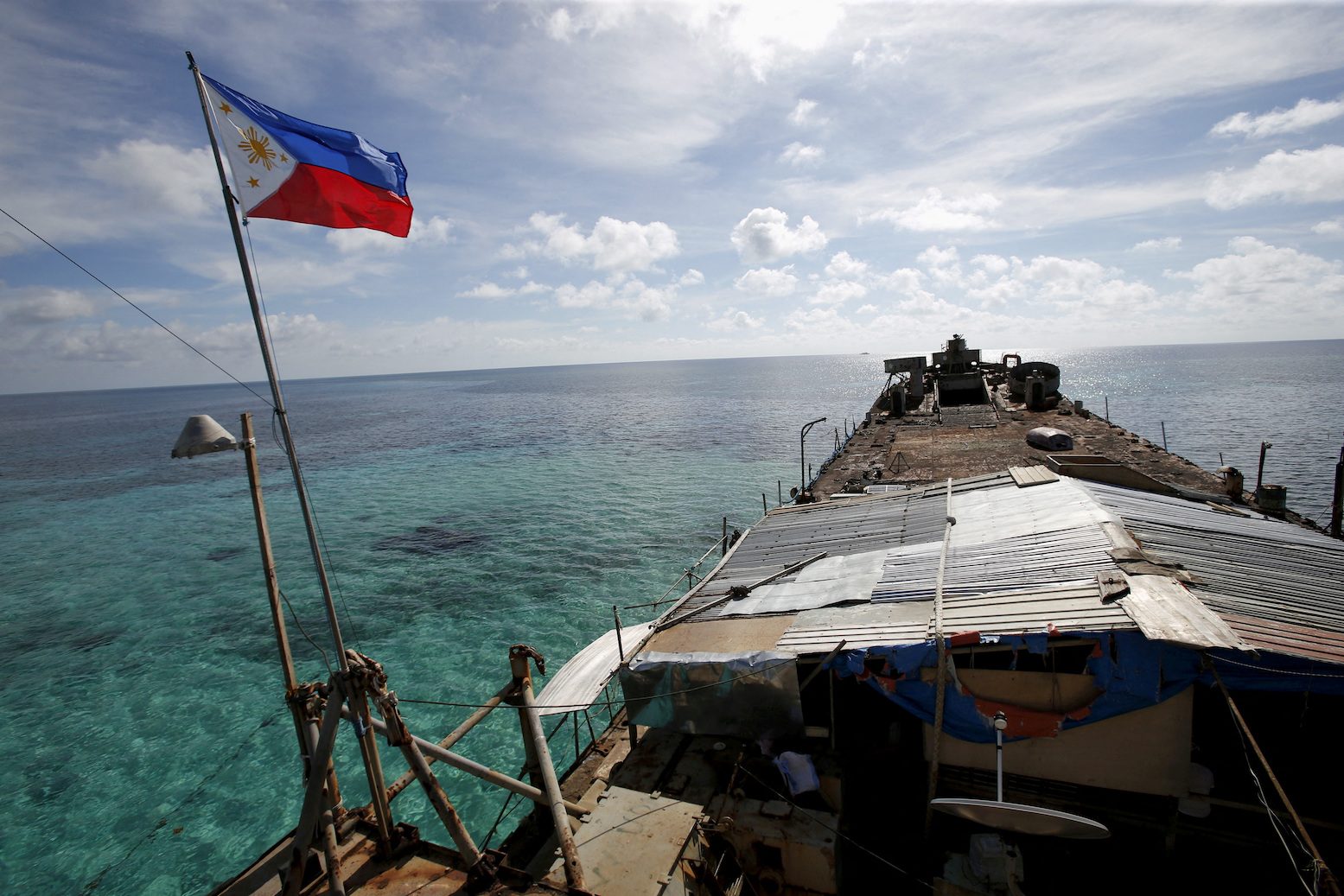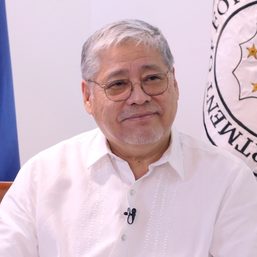SUMMARY
This is AI generated summarization, which may have errors. For context, always refer to the full article.

MANILA, Philippines – Follow our laws.
The Department of Foreign Affairs (DFA) reminded diplomats on Thursday, May 9, that they should “strictly adhere” to the 1961 Vienna Convention on Diplomatic Relations, particularly on respecting the laws of their host governments.
The DFA issued the reminder days after China threatened to release a purported recording of a phone call between a Chinese diplomat and a ranking Filipino general.
“Diplomats should strictly adhere to the 1961 Vienna Convention on Diplomatic Relations, particularly Article 41,” said the DFA.
Article 41 states: “Without prejudice to their privileges and immunities, it is the duty of all persons enjoying such privileges and immunities to respect the laws and regulations of the receiving State. They also have a duty not to interfere in the internal affairs of that State.”
The Philippines and China are signatories to the Vienna Convention, which they ratified in 1972 and 1969, respectively.
On late Tuesday, May 7, anonymous Chinese officials claimed through Bloomberg News and the Philippines-based Manila Times that they had a recording of a phone conversation with Armed Forces of the Philippines Western Command (Wescom) Commander Vice Admiral Alberto Carlos.
The recording of phone conversations without the consent of all parties involved is illegal in the Philippines.
In the supposed call, the three-star Filipino general purportedly agreed to what China calls a “new model” in handling tensions in Ayungin Shoal in the West Philippine Sea.
China has claimed that the call supposedly proves that top Philippine officials were aware of the agreement. Defense Secretary Gibo Teodoro Jr. and National Security Adviser Eduardo Año have denied agreeing to or being informed about any such deal.
Amid China’s claim, the DFA advised the public, “The DFA cautions against falling for false narratives.”
“Resorting to tactics such as releasing unverifiable recordings of supposed conversations with Philippine officials could demonstrate efforts to sow discord and confusion among Philippine agencies and the Filipino public,” the department added in its statement on Thursday.
Teodoro earlier said it would be up to the DFA to determine if Philippine laws were violated, find out who did it, and remove those responsible from the Philippines.
Who has authority?
Only President Ferdinand Marcos Jr., through the DFA, can enter into agreements concerning the West Philippine Sea and the South China Sea.
Operational, tactical, and strategic decisions in those waters, especially if they are military in nature, typically also go through the National Task Force for the West Philippine Sea, a body composed of various government agencies and headed by Año.
Wescom, based in Palawan, has command over the BRP Sierra Madre, a rusting warship ran aground on Ayungin Shoal or Second Thomas Shoal in 1999. Wescom is responsible for manning the makeshift outpost and making sure its troops are provided for.
Even if the shoal is well within the Philippines’ exclusive economic zone, China claims it – the same way it claims most of the South China Sea.
Rotation and resupply missions to Ayungin are often fraught with risks, as China routinely harasses Philippine missions to the BRP Sierra Madre.
Carlos, who is currently on personal leave, has joined several of these mission, including two recent voyages that were subjected the China Coast Guard’s water cannons.
China has refused to recognize the 2016 Arbitral Award, which invalidated its sweeping claim of the South China Sea.
China’s threat to release the supposed recording is the latest in Beijing’s word war with Manila over the South China Sea. It has insisted that the Philippines reneged on supposed promises to manage tensions in those waters – even if Beijing itself has said that these agreements, including one made under the previous administration, were informal.
Under Marcos, the Philippines has become more assertive in its rights and claims in the West Philippine Sea. – Rappler.com
Add a comment
How does this make you feel?











![[EDITORIAL] Diplomasya ni Rodrigo Duterte sa Tsina: Nakaluhod nang dikit ang noo sa lupa](https://www.rappler.com/tachyon/2024/05/animated-duterte-china-panatag-shoal-carousel.jpg?resize=257%2C257&crop_strategy=attention)










![[Just Saying] SONA 2024: Some disturbing points](https://www.rappler.com/tachyon/2024/07/TL-marcos-sona-points-july-23-2024.jpg?resize=257%2C257&crop=335px%2C0px%2C720px%2C720px)

There are no comments yet. Add your comment to start the conversation.